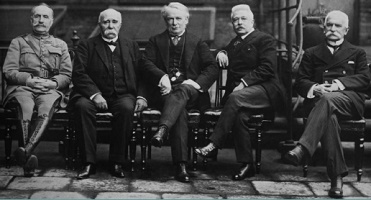Fantastic Story Definition, Examples, and Meaning
We explain what a fantastic story is, several examples and meanings of this literary genre, and its relationship with the wonderful story.
What is a fantastic story?
When talking about a fantastic story, reference is made to a specific type of literary story, often traditionally oriented to a youth audience, in which a possible world other than the real world is inaugurated in its laws and rules of operation. In other words, fantastic stories propose fictional universes as detached as possible from reality.
What are fantastic stories?
The fantastic, seen in this way, is a category of fiction that serves to distinguish between different modes of literary narration, for example, between realistic-cut stories (inserted in a world identical to the real world), or science fiction (similar universes to the real one except for some significant scientific and/or technological detail), etc.
Therefore, what is represented in a fantastic story defies the laws of reason and lacks verifiable existence through our experience of the world. Fictional events such as magic, ghosts, imaginary creatures, gods, or supernatural forces often define the image of the fantastic.
The fantastic story has been extensively cultivated throughout the history of literature, reaching in many cases aesthetic and poetic levels of the utmost importance, and in others being relegated to children’s entertainment readings.
Fantastic story examples
Some examples of fantastic stories are:
- Cinderella is a traditional story attributed to Perrault.
- The Lord of the Rings is a fantastic novel in several volumes, written by JRR Tolkien.
- The thousand and nights is a compendium of fantastic stories set in Asian antiquity and of anonymous origin.
- Alice in Wonderland is a fantasy novel written in the 19th century by Lewis Carroll.
- “The rain of fire”, is the story by the Argentine writer Leopoldo Lugones.
- “The feather cushion”, is the story by the Uruguayan writer Horacio Quiroga.
- “The dinner”, is a story by the Mexican writer Alfonso Reyes.
- “The doctor of the dead”, is the story of the Venezuelan writer Julio Garmendia.
- “Natalia”, is a story by Uruguayan writer Macedonio Fernández.
- “El aleph” is a story by Argentine writer Jorge Luis Borges.
- “The Call of Cthulhu” is a story by the American writer HP Lovecraft.
- The shadow is a novel by the Spanish writer Benito Pérez Galdós.
- The metamorphosis is a novel by the Czech writer Franz Kafka.
- “Colonel Chabert” is a story by French writer Honoré de Balzac.
Wonderful story
The wonderful term is often used as a synonym for the fantastic, although it contains connotations more linked to the infantile world, with fables, fairy tales, or traditional childhood stories. It is considered an escapist genre, which evades reality as much as possible.
A wonderful story is characterized, thus, by posing magical and supernatural scenarios that incite amazement or fun, and whose plot is usually linked to the story of adventures.
It is not unusual to find in this type of text a more or less explicit final learning, although never stated directly as in the case of the moral at the end of a fable.
You May Also Like:





